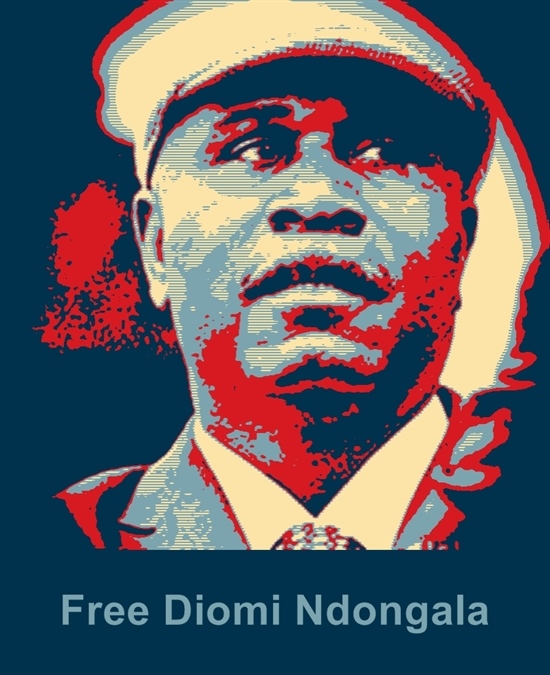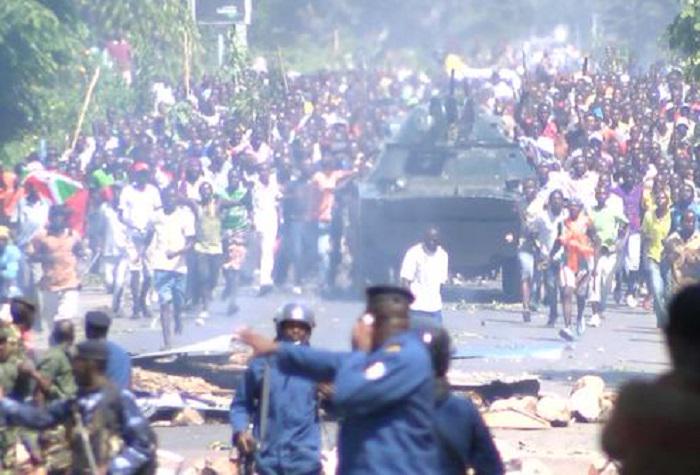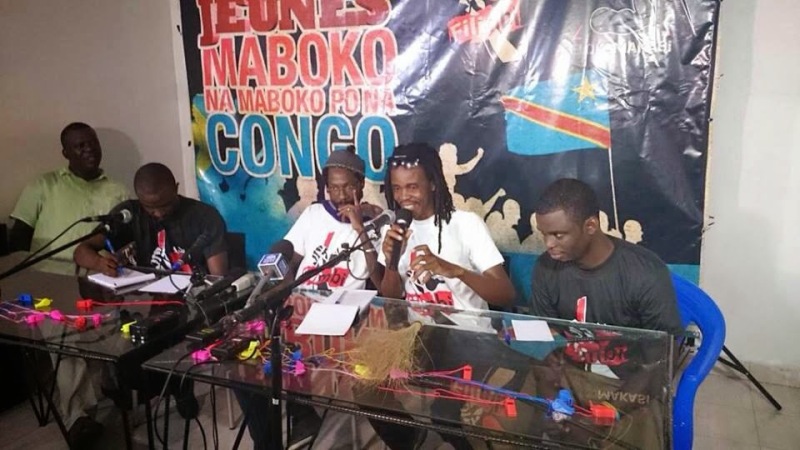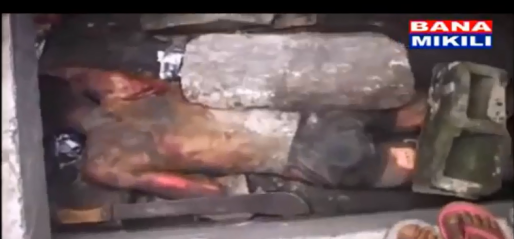KAGAME, DOCTEUR EN « DESHONNEUR » CAUSA
Par
Sang et honneur pour le docteur Paul Kagame
Le président rwandais est devenu docteur honoris causa d’une université américaine le même jour que l’ancien PDG de la Citybank…qui l’a bien aidé à financer ses guerres au Congo.
Samedi 12 mai 2012, Sanford Weill et son épouse Joan, ont été faits « Docteurs Honoris Causa » de l’université de Sonoma dans le Comté du même nom en Californie.
Le même jour, c’était au tour d’un autre étudiant modèle, à savoir le président Rwandais Paul Kagamé, de recevoir son diplôme en « Lettres et Humanité » des mains du doyen de l’université William Penn qui fait la fierté de l’état US de l’Iowa.
Deux étudiants hors du commun, devenus Docteurs « Honoraires » le même jour à 2 500 kilomètres de distance, liés peut être à l’insu de leur plein gré, par un même destin.
Il faut bien le reconnaitre, l’un comme l’autre n’ont pas lésiné sur les moyens pour obtenir leur distinction académique…
Sandy, l’ancien Président Directeur Général de Citigroup, a commencé par verser 12 millions de dollars particulièrement appréciés par le conseil d’administration de la fac californienne. Ils vont notamment servir à terminer le Green Music Center de 1400 places qu’on a évidemment décidé de baptiser « Joan & Sandford Weill Symphony Hall ».
La reine des Subprimes
Les étudiants locaux dont les parents ont vu ces derniers mois leur maison saisie à la demande de la Citibank, l’une des reines des subprimes, ou qui peinent à rembourser leurs prêts-étudiant, se sont probablement abstenus d’assister à la cérémonie. Il paraît que ceux qui y étudient la finance ont gardeé en travers de la gorge la bouée de sauvetage de 475 milliards de dollars –la plus élevée à ce jour – de fonds publics débloqués en urgence par les Etats Unis pour éviter à Citigroup de sombrer au top de la crise financière. Plus directement, personne n’a zappé que sous l’administration Clinton, Sandy a largement contribué à la mise en pièces de la loi Glass-Steagall, ouvrant grand la porte à la bancocratie triomphante dont nous continuons à payer le prix. D’ailleurs, le Time Magazine ne s’y est pas trompé en le plaçant dans un tout autre palmarès, bien avant qu’il reçoive son titre honorifique, comme l’un des 25 responsables de la crise financière mondiale. La Classe.
Pour Paul Kagamé, l’actuel président Rwandais, c’est sans doute sa parfaite connaissance de la géographie du Rwanda, du Burundi et du Congo qui justifie sa distinction par l’université de l’Iowa.
D’ailleurs pour célébrer l’événement, le Haut Commissariat aux Réfugiés de l’ONU a publié le 16 mai, une photo saisissante accompagnée d’un commentaire selon lequel depuis le 27 avril, 8200 nouveaux congolais ont franchi la frontière orientale du Congo pour se réfugier dans les camps rwandais. Un mois plus tard, 30 000 autres malheureux reprenaient en chœur le fameux slogan : « En Mai, deviens Ougandais »…
Un doctorat à 5,4 millions de morts
La thèse de Doctorat de Kagamé Paul, étudiant à l’université William Penn, a malheureusement été écrite en… 2001 par l’ONU ; son titre ? « Rapport du groupe d’experts sur l’exploitation illégale des ressources naturelles et d’autres formes de richesses de la République Démocratique du Congo ».
Le remarquable travail de recherche, décrit notamment le rôle de la Citibank dans le transfert vers le Rwanda, du coltan, ce minerai stratégique dont 60 à 80% des réserves mondiales sont concentrées dans la région du Kivu, et le rapatriement d’une partie des profits vers le Congo afin d’y soutenir l’effort de guerre de l’étudiant Kagamé.
Le 12 mai, pendant le discours du doyen, de nombreux étudiants qui assistaient à la petite fiesta étaient plongés dans les paragraphes 130 à 135 de la thèse en question : la partie consacrée aux instructions données à la Citibank à New York par une banque rwandaise, la BCDI, de payer les millions de dollars de factures des entreprises rwandaises qui approvisionnaient les milices locales pendant la deuxième guerre du Congo.
Un pré-jury, l’ONG « Comité International de Sauvetage » – IRC – fondé en 1933 sous l’inspiration d’Albert Einstein pour apporter son assistance aux réfugiés victimes de guerres et de catastrophes naturelles, s’est d’ailleurs penché dès janvier 2008 sur les circonstances à l’origine de la distinction universitaire de Paul Kagamé. Il a estimé que les conflits congolais avaient provoqué la mort de 5,4 millions de personnes entre 1998 et 2008. Majoritairement victimes de famines et d’épidémies multiples contractées dans les camps de réfugiés et au sein des populations déplacées…A la lumière de ces infos, on peut se légitimement se poser la question : le mot Honneur a-t-il encore un sens ?
LIRE AUSSI, DANS LE NEW YORK TIMES:
Op-Ed Contributor
The Darling Dictator of the Day
By MARC SOMMERS
Published: May 27, 2012
- Google+
- Share
- Reprints

Rwanda’s Paul Kagame is accustomed to accolades. On May 12, he received yet another honorary degree, this time from William Penn University in Oskaloosa, Iowa. Celebrating Kagame is in vogue because he is credited with leading a remarkable recovery from war and genocide in the heart of Africa.
Finbarr O’Reilly/Reuters
Most opposition political parties were barred from registering for Rwanda’s 2010 presidential election, in which Paul Kagame won 93 percent of the vote.
Related in News
-
Times Topic:Paul Kagame
Connect With Us on Twitter
For Op-Ed, follow @nytopinion and to hear from the editorial page editor, Andrew Rosenthal, follow @andyrNYT.
There certainly have been achievements in Kagame’s Rwanda. Economic growth has been climbing (G.D.P. growth for 2011 was more than 8 percent) and private investment is a featured component of that growth (Costco and Starbucks now buy about a quarter of Rwanda’s premium coffee crop).
In fact, the World Bank ranks Rwanda as the eighth easiest place to start a new business. The government is renowned for reducing corruption, expanding security, addressing genocidal crimes and increasing women’s rights.
Yet while Kagame is no Idi Amin or Charles G. Taylor, he does not merit his reputation as a visionary modernizer. The reason is simple: his state is all about force.
There’s no question who’s in charge in Rwanda. The government’s commanding presence in Rwandan lives is aggressively maintained by Kagame and a clique of other former Tutsi refugees from Uganda. Indeed, according to the U.C.L.A. sociologist Andreas Wimmer, Rwanda has the third-highest level of political exclusion in the world (behind Sudan and Syria).
Kagame’s government asserted its power in the run-up to the 2010 presidential elections, when authorities barred most opposition political parties from registering for elections, closed down many independent newspapers, and witnessed the flight into exile of several prominent government officials who said they “feared for their lives.”
There were also three suspicious pre-election shootings. One of the exiled officials, Kagame’s former chief of staff, Faustin Kayumba Nyamwasa, was shot in the stomach in South Africa after openly criticizing the Rwandan government. A Rwandan journalist, Jean Léonard Rugambage, was killed shortly after his article, which pointed to government complicity, was published. The deputy leader of the Green Party, which was among those unable to register, was found not only dead but with his head partly severed.
Kagame garnered 93 percent of the vote. Soon after the election, an exhaustively researched United Nations “mapping exercise” report led the veteran Rwanda expert Filip Reyntjens to state that “there is overwhelming evidence of responsibility for war crimes and crimes against humanity” against Kagame. A foreign expert (who asked not to be named) also reported the disappearance of “a large number” of Rwandan civil society members in 2007.
Nowhere is the heavy-handed and destructive nature of Kagame’s government more apparent than in its approach to youth. In Rwanda, traditionally no young man can be recognized as an adult until he first builds a house and then marries. But my research detailed how government regulations make it virtually impossible for young Rwandans to complete their houses.
It is not just that forcing farmers into state villages has consistently failed across the region (notably Ethiopia, Tanzania and Mozambique). A government official also explained that, although most young men are able to construct a dwelling consisting of “one simple room,” the government’s minimum required dimension is six times that size. The result is a treadmill toward public humiliation.
The specter of masses of failed men is no small concern: with a median age of 19, Rwanda has one of the youngest populations in the world.
The alarming situation that Kagame’s government has created boils down to this: While government officials are expected to implement policies that cannot be enacted and dissent is out of the question, people are being forced to follow a blizzard of regulations. Lacking options, desperate Rwandans become lawbreakers, building illegal houses that the authorities tear down and enduring fines and harassment by selling wares in the streets.
The government’s response is to pressure people even more. As Kagame explained to the journalist Stephen Kinzer, “We have to work on the minds of our people. We have to take them to a level where people respect work and work hard, which has not been the case in the past. You have to push and push.”
My research found the reverse: most Rwandans are stuck in difficult and frequently humiliating circumstances, which government regulations have largely created. Mid-level Rwandan officials confirmed every major finding.
Envisioning a radiant Rwanda is only possible if one shares the blinders that its government so confidently wears. The government of Paul Kagame boasts many excellent ideas. But underneath the splendid success are disturbing realities that are systematically contained. At least for now, Rwanda’s progress is dangerously uneven and so reliant on extreme levels of social and political control that its future is foreboding.
Despite its promise, Rwanda is a country in lockdown. Loosening the autocrat’s reins and helping his nation avoid another violent explosion is a message that only Rwanda’s international supporters can deliver to President Kagame. Foreign governments and individuals alike must push for easing or removing restrictions on the press, politics, civil society, housing, street vending and much more. Advocating against state coercion is far too dangerous for Rwandans themselves to undertake.
Marc Sommersis a fellow at the Woodrow Wilson International Center for Scholars and the author of “Stuck: Rwandan Youth and the Struggle for Adulthood.”
http://www.nytimes.com/2012/05/28/opinion/Paul-Kagame-The-Darling-Dictator-of-the-day.html?_r=1








 CONGO-BRAZZAVILLE: LE « SASSOUFIT » DE LA POPULATION A L’APPROCHE DU REFERENDUM POUR LE CHANGEMENT DE CONSTITUTION /DOSSIER DC
CONGO-BRAZZAVILLE: LE « SASSOUFIT » DE LA POPULATION A L’APPROCHE DU REFERENDUM POUR LE CHANGEMENT DE CONSTITUTION /DOSSIER DC LE COMBAT ET LA PERSECUTION DU LEADER DE L'OPPOSITION CONGOLAISE EUGENE DIOMI NDONGALA
LE COMBAT ET LA PERSECUTION DU LEADER DE L'OPPOSITION CONGOLAISE EUGENE DIOMI NDONGALA LES DOSSIERS DE LA DC/ TENTATIVE DE COUP D'ETAT AU BURUNDI/ MISES A JOUR CONTINUELLES
LES DOSSIERS DE LA DC/ TENTATIVE DE COUP D'ETAT AU BURUNDI/ MISES A JOUR CONTINUELLES LES DOSSIERS DE LA DC: L'AFFAIRE FILIMBI
LES DOSSIERS DE LA DC: L'AFFAIRE FILIMBI LES DOSSIERS DE LA DC: L'OPERATION LIKOFI CONTRE LA JEUNESSE CONGOLAISE
LES DOSSIERS DE LA DC: L'OPERATION LIKOFI CONTRE LA JEUNESSE CONGOLAISE LES DOSSIERS DE LA DC: LA FOSSE COMMUNES AVEC 425 CADAVRES DE MALUKU
LES DOSSIERS DE LA DC: LA FOSSE COMMUNES AVEC 425 CADAVRES DE MALUKU LES DOSSIERS DE LA DC: LA REVOLUTION LWILI DU BURKINA FASO
LES DOSSIERS DE LA DC: LA REVOLUTION LWILI DU BURKINA FASO LES DOSSIERS DE LA DC: LES MANIFESTATIONS POPULAIRES DU 19/20/21 JANVIER 2015
LES DOSSIERS DE LA DC: LES MANIFESTATIONS POPULAIRES DU 19/20/21 JANVIER 2015 LES DOSSIERS DE LA DC: LES MASSACRES DE BENI ET LA REVOLTE DE LA POPULATION
LES DOSSIERS DE LA DC: LES MASSACRES DE BENI ET LA REVOLTE DE LA POPULATION MAPPING DES « CRIMES DE MASSE » DU REGIME KABILA DEPUIS JUILLET 2001 – OFFICIELLEMENT REPERTORIES
MAPPING DES « CRIMES DE MASSE » DU REGIME KABILA DEPUIS JUILLET 2001 – OFFICIELLEMENT REPERTORIES MPP
MPP SOUTENEZ LA DC
SOUTENEZ LA DC MONITORING DU VOTE CONGOLAIS DU 28/11/2011: LES CAS DE FRAUDE ET VIOLATION DE LA LOI ELECTORALE
MONITORING DU VOTE CONGOLAIS DU 28/11/2011: LES CAS DE FRAUDE ET VIOLATION DE LA LOI ELECTORALE



.svg/250px-Democratic_Republic_of_the_Congo_(orthographic_projection).svg.png)



